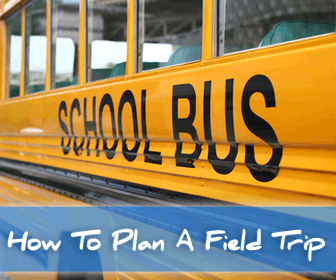How To Plan A Field Trip Your Learners Will Never Forget


That’s because they are in your speaking class. You pride yourself on making class exiting and engaging. You want your students to talk more than you do, and you see them improving their English speaking abilities every day. Sometimes, though, it’s just time to get out of the classroom. Other teachers get frustrated, feeling they cannot take their speaking class outside the classroom walls, but you know better. You know that field trips can be one of the greatest assets to your speaking curriculum. And even if you don’t quite know how to make the most of field trips for your speaking class yet, you will when you use the following ideas.

The speaking that your students do on a field trip is real. Not to say that speaking in the classroom isn’t, but sometimes fabricated classroom exercises can come off a little artificial. When your students speak during a field trip, they are in real contexts talking to real people. The type of language they use has a clear purpose – communicating with the people around them. Not only that, the places where they are having the conversations are more real. Your students may encounter background noise or other challenges that they have not experienced in the classroom. This will be challenging as they listen and as they speak, but when they do their language skills are sure to improve.
To use the reality of field trips to your advantage, don’t try and make things easier for your students. Challenge them to communicate even though their surroundings may be less than ideal. Encourage them to raise their voices when necessary or use the language they do know in creative ways. Show them how to ask questions appropriately, both in the words that they use and the body language that comes along with them.
Getting your students out into a nonclassrom context gives them a chance to make different and tangible connections with the material you are teaching. If your speaking class is anything like mine have been, you teach along thematic units. When your field trip ties into those themes, your students can make concrete connections with language that might otherwise be intangible. They can see, feel, smell and fully experience the context, and that experience will help their language knowledge really stick.
When you can, tie in your field trips thematically. Getting tours or a sporting location, office facility or restaurant would tie into units on sports, business and food. Teach your students the vocabulary beforehand, but point out the tie-ins when you are on your field trip. If possible, give your students a chance to touch objects, move around the environment and experience their surroundings with every sense they possess. Your students will remember the meaning of “sour” better when they bite into a lemon wedge, and because they shouted into an empty theater from the stage, they will remember the meaning of “echo”. The more your students experience the context, the better they will retain the knowledge about it.
You can do so many different speaking activities with your students when you guide them out of the classroom and into the world. Doing interviews is an easy one. When your students are getting a tour of an unusual place or meeting interesting people at those places, require your students to ask questions. If possible, arrange one on one interviews and help your students prepare before the trip. Before you take your trip, have students discuss their expectations and make predictions about the trip and what they will learn. After the trip, have students discuss their predictions and whether they were wrong or right. Have them talk about the things they learned and make a list of things they would still like to know. You may even want to have your students do follow up interviews to get that additional information or to do research on a related topic. Your students will continue to make connections between the information they already know and the new language they are learning when they are using language for practical purposes with clear goals.
Field trips have one more important quality to offer your ESL students: excitement. If your students have travelled overseas to study English, a field trip can be an exciting way to see into the world around them. It can be a lesson in culture or a reminder of home. In either case, field trips will engage and interest your students, and happy students are better learners. Most students are excited to talk about what they have learned and what they experienced on their fiddle trips. And that enthusiasm can be just what you need to maintain or increase momentum in your class. Use the memories your students make during the field trip to spark discussions on interesting topics. Bring culture into your discussions, and let your students talk about the challenges they faced when they were out in the real world.
Whether you are an experienced ESL teacher or are new on the job, you see the benefits of field trips for students in your speaking class. In fact, the more you use field trips to encourage real, authentic and memorable language use, the more you will want to include them in your lesson plans. And when you do, everyone will experience the benefits.